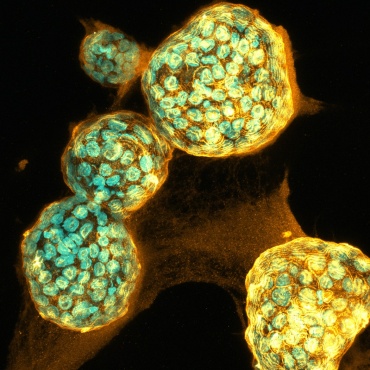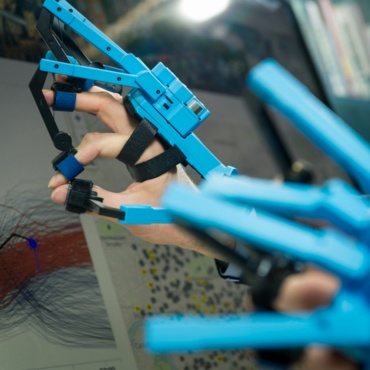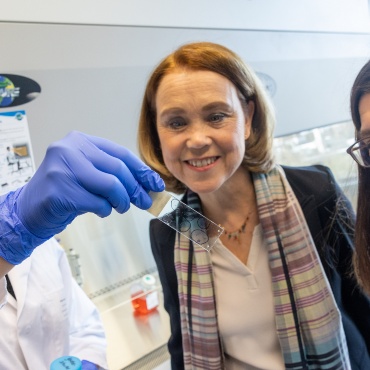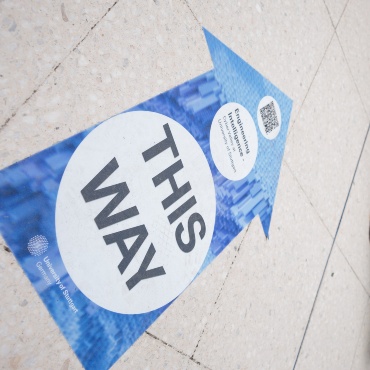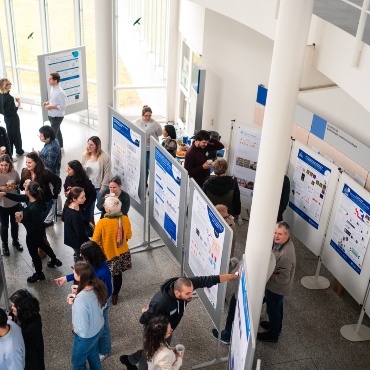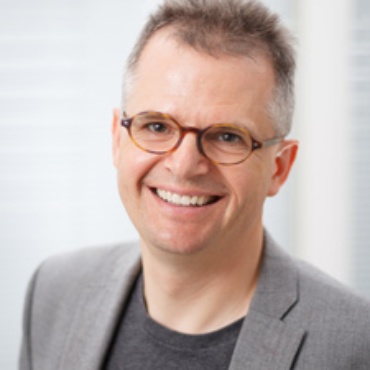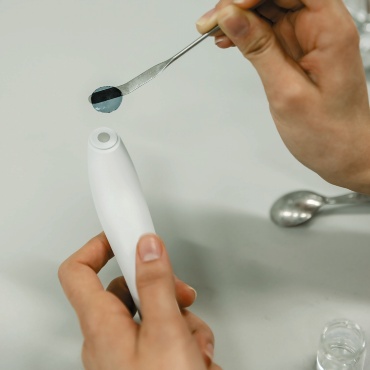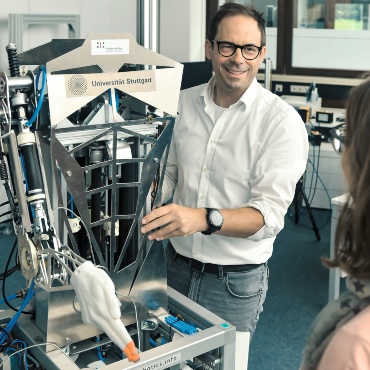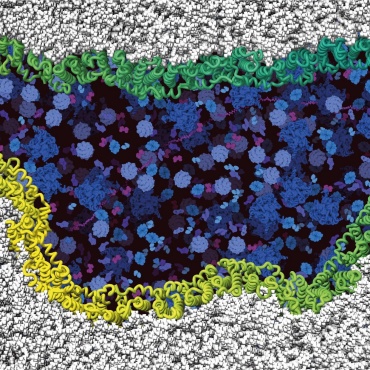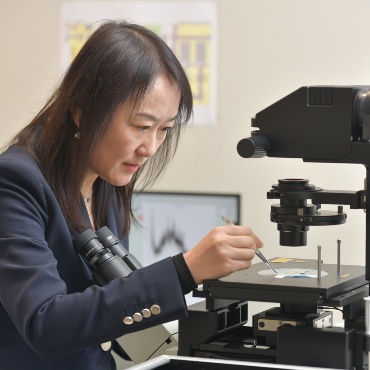
Interested in working with us?
The most pressing societal and scientific challenges lie in the field of medicine. Fusing biosciences and engineering is key to radically improving biomedical research and technologies available in the health care sector.
Highly precise diagnostics, personalized therapies, for example, for cancer, novel antibiotics or innovative rehabilitation systems, such as exoskeletons or neuroprosthetics will offer substantial benefits over conventional solutions and help prevent or alleviate illness and disease.
Joint research
- Stuttgart Research Center Systems Biology
Stuttgart Research Center - Mass Personalization
Stuttgart Partnership Initiative - 3R-BioMedicUS
Stuttgart Research Initiative
Combined research expertise
Combining expertise from various fields, the research area "Biomedical Systems" at the University of Stuttgart is in a unique position to contribute to new biomedical solutions. The internationally renowned team unites research expertise in biotechnology and bioengineering, sensors and nanotechnology, as well as biointelligent devices and robotics.
[Photos: University of Stuttgart (SRCSB), University of Stuttgart (Celia Lozano, MPI for Intelligent Systems), University of Stuttgart (Max Kovalenko)]
Excellent research conditions
Researching intelligent biomedical systems demands a deep understanding of modeling and simulation - areas of expertise that are key strengths of the University of Stuttgart: with the Cluster of Excellence "Data-Integrated Simulation Technology" (SimTech) the university is home to an outstanding research center for simulation science with state-of-the-art facilities. Furthermore, the University of Stuttgart is one of only three research institutions in Germany that hosts a world-class High Performance Computing Center (HLRS).
In addition, the research area of "Biomedical Systems" collaborates with various external research institutions, as well as with clinical and industrial partners to translate basic research findings into personalized biomedical and health-related applications.
Biomedical Systems connects the dots to enable cutting-edge science to improve patients’ lives.
Prof. Dr. Monilola Olayioye, Lead of the Scientific Coordination Team
- Our bachelor’s degree programs in biomedical systems
- Our master’s degree programs in biomedical systems
- Project DentoZym 2023
Students from the University of Stuttgart take part in renowned synthetic biology competition (iGEM)


